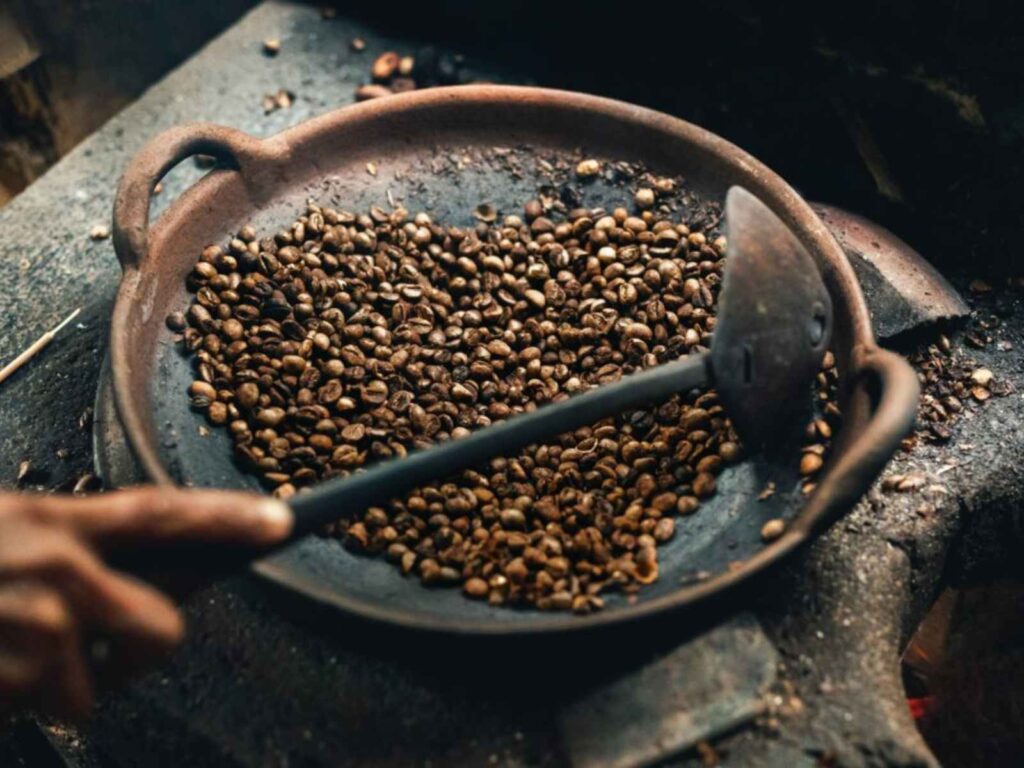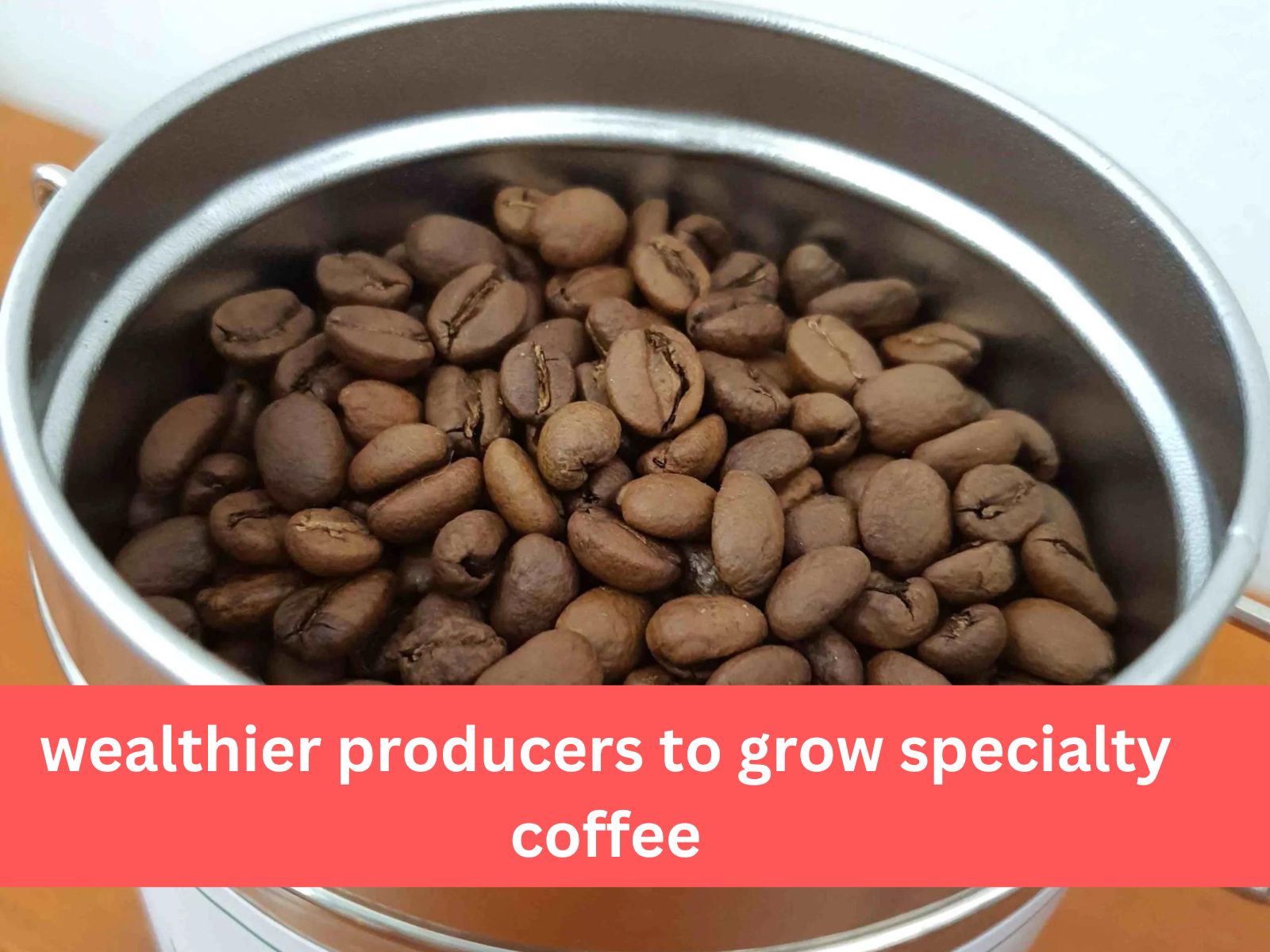The disparity between rich and poor in specialty coffee manufacturing is a multifaceted and interconnected issue. It sets off an endless cycle of economic and quality discrepancies between coffee from rich and poor locations. The tastes in a cup of coffee are rich and sharp, which is due not only to the quality of the specialty coffee beans, but also to the farmer’s work ethic and dedication. Farming households with limited resources will have fewer opportunities to obtain high-quality raw materials and specialized processing equipment. Financial constraints can also limit access to agricultural investment, knowledge of coffee production practices, land management, and processing technologies. Poor farms also struggle to construct adequate processing and storage infrastructure, and they risk having to reduce essential production inputs.
What’s special about Specially Coffee
First, there’s the plant itself. Specialty coffee is prepared only from Arabica types. Coffea Arabica is a sensitive plant that is prone to illness and requires specific growing conditions, including rich soil and high elevations. The Arabica family includes over a hundred types that are farmed naturally and painstakingly selected. Some of the plants grow shorter and bushier for easier harvesting, while others produce bigger harvests, but they all have a distinct flavor.
Countries like as Ethiopia, Kenya, and Colombia are regarded for producing some of the world’s best specialty coffee. Specialty coffee can only be cultivated under optimal conditions; if the seed is sown in the wrong location, soil, or altitude, the coffee loses its special accreditation. Farmers must take particular care to harvest the beans at the optimal moment for maximum flavor.
Capital Advantage to Wealthier Producers

Farmers with better access to cash are better positioned to capitalize on the higher prices paid for specialty coffee. Few roasters are ready to dedicate themselves to long-term contracts, increasing the already high risk for smallholders, who have no certainty that they will be able to move their coffee when it is harvested. Most smallholders lack the means to continually reinvest in their farms in order to stay current with market trends, thus they frequently resort to banks. Many banks refuse to finance those who have little to no collateral that would allow them to obtain credit. Higher borrowing rates in some growing regions make it extremely difficult for smallholders to obtain funding.
Advanced Techniques and Technology
When it comes to sustainability in the coffee industry, traceability and openness are two of the most frequently debated topics. These notions essentially address access to production-level information, such as the prices paid to coffee producers or the precise plot of land where coffee was grown. For many years, technology has been utilized to increase transparency and traceability in coffee manufacturing.
One of the most noteworthy instances is blockchain technology, which enables several supply chain actors to store information regarding a decentralized network. To maintain the coffee beans’ freshness and potential, they should be delivered quickly to the mill.
The beans should next be professionally handled, with great care taken to ensure that they are not dried unevenly, insufficiently, too slowly, or too rapidly, as this reduces their chances of being graded special. The barista must also be aware that extreme precision is required to extract the maximum benefit from these meticulously selected and prepared beans.
Risk Management in Coffee Production

Specialty coffee is frequently marketed as a shining example to coffee growers around the world: increase the quality of your product and be rewarded for it when it comes time to harvest. However, it is definitely not that straightforward. So, how might specialty coffee become a desirable and sustainable alternative for all (or most) coffee producers? Scale and yield productivity are the most crucial variables that must be pushed to boost farmer wealth.
However, increasing production runs the danger of market saturation and diminishing market-based premiums, resulting in price and profit volatility . Finding power in numbers will be crucial.
Producers will be able to define standards, negotiate input costs, cut labor costs, determine market prices, and engage with value chain partners for fairer, direct sales by forming production groups, or “circles of excellence”. Many farms, on the other hand, can be sustainable by maintaining a steady bottom line – selling mostly lower-scoring coffee while minimizing the risks and uncertainties associated with specialty coffee.
Market Access and Branding

A coffee cooperative is a group of producers who work together to enhance access to specific resources. Fertilizers, gardening equipment, seeds, and loans are examples of such resources. According to the researchers’ findings, cooperatives are also a potential approach for closing the wealth gap. In addition to pooling production resources, cooperatives enable farmers to participate in formal training programs and benefit from improved marketing and business prospects.
This can help them get greater prices for their coffee or enhance stability by committing to several sales of larger amounts of coffee. However, cooperatives might lead to some product quality issues. As a result, this model must be strictly monitored to maintain fairness and product quality.
Also Read
Must have tools for coffee lovers
Conclusion
The Specialty Coffee Association (SCA) describes specialty coffee as coffee that has been graded higher than 80. This means that the quality of the coffee extends beyond the final product presented in your cup. Specialty coffee is a unique approach to coffee that is motivated by socially conscious principles, a desire for quality and variety, and a thriving global community.
As the specialty coffee market seeks new ways to compete, growers will be pushed to develop new exotic varieties and implement experiential processing processes. This demand, however, presents a significant challenge to many of the world’s coffee farmers. Unlike other commodities that gain value through the process, specialty coffee is already a distinctive good while still green.
Specialty coffee is frequently marketed as a shining light for coffee producers around the world: increase the quality of your product and be rewarded when it comes time to harvest. However, it is evident that things are not that straightforward.

